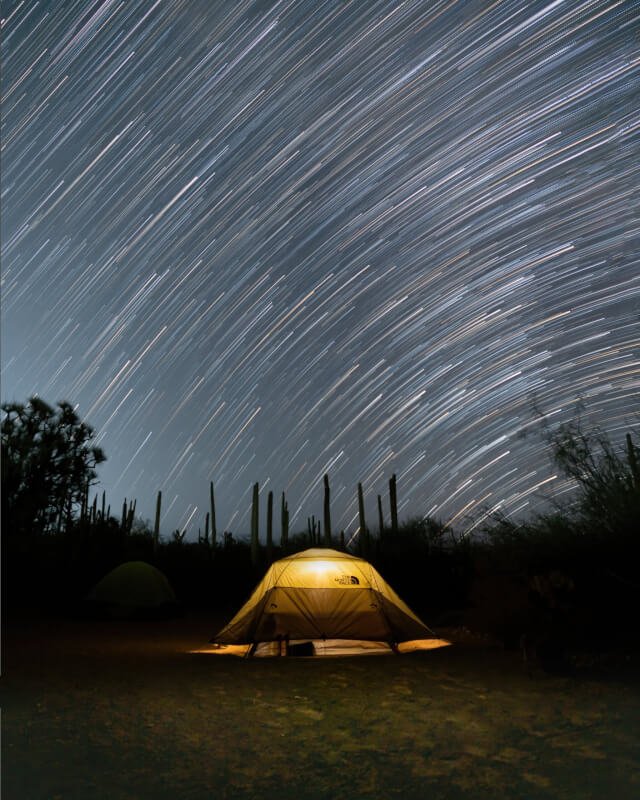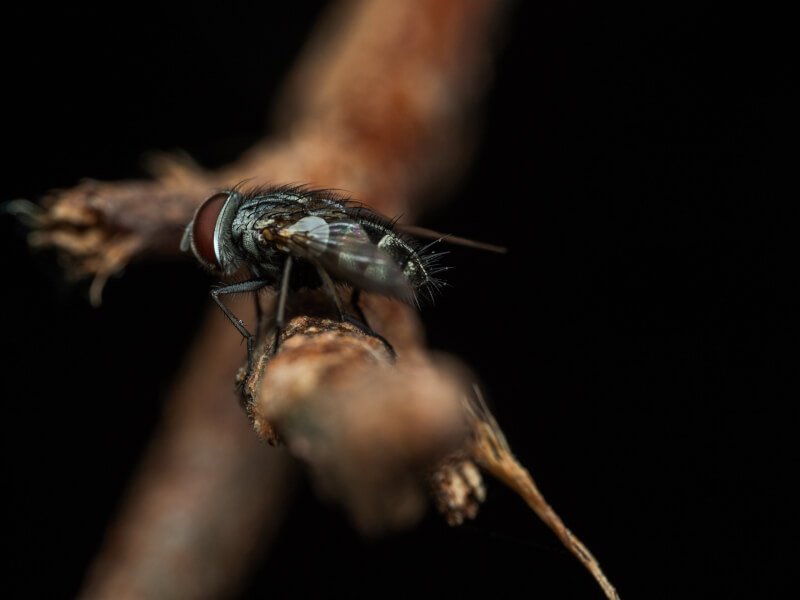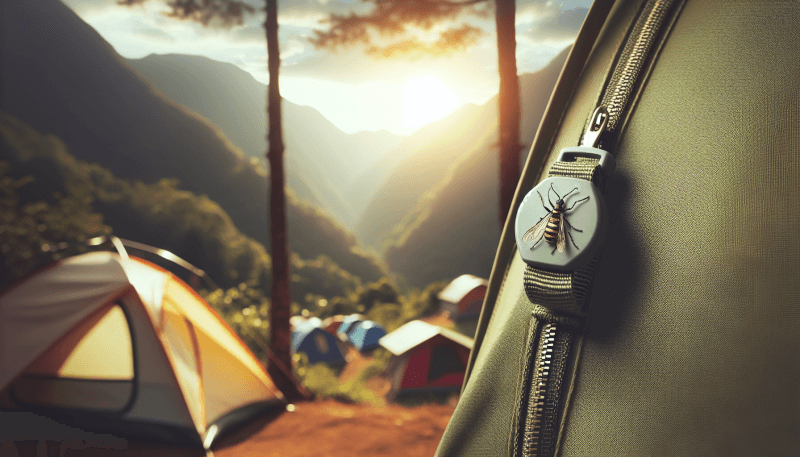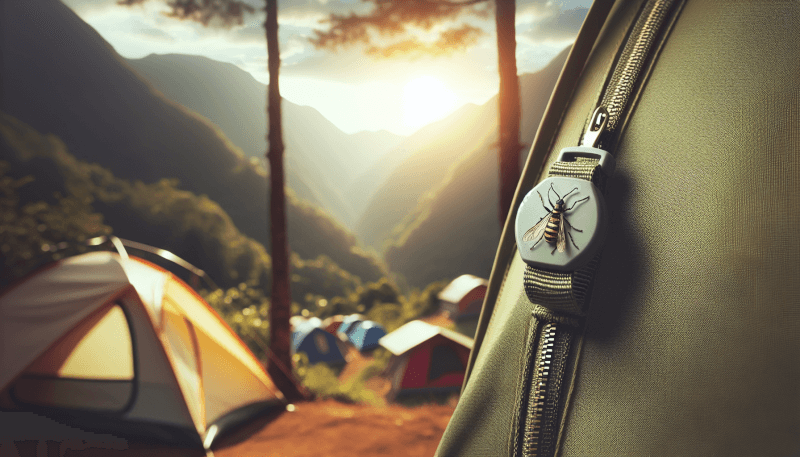Camping in the great outdoors can be an amazing experience, filled with breathtaking views, fresh air, and the chance to disconnect from the hustle and bustle of everyday life. However, pesky insects can quickly turn your idyllic getaway into an itchy nightmare. From buzzing mosquitos to creepy crawlers, these unwelcome guests can put a damper on your camping adventure. But fear not, there are several simple yet effective ways to protect yourself from insects while camping. By following a few helpful tips and tricks, you can keep those bugs at bay and enjoy a bug-free camping experience.
Choose a Campsite Wisely
When it comes to camping, choosing the right campsite is key to avoiding unwanted encounters with insects. One important factor to consider is avoiding camping near standing water. Mosquitoes and other insects are attracted to stagnant water, as it serves as a breeding ground for them. Therefore, it is best to set up your campsite a safe distance away from lakes, ponds, or any other areas with pooled water.
Another factor to consider is staying away from areas with high grass or dense vegetation. These areas provide ideal hiding spots for insects, making it easier for them to bother you during your camping trip. Opt for a location with well-maintained surroundings and minimal vegetation to reduce the chances of finding yourself in the midst of a bug-infested environment.
Additionally, selecting a spot with a breeze can significantly reduce the presence of insects. Insects like mosquitoes are not strong fliers, so a gentle breeze can make it difficult for them to hover around your campsite. Seek out an area that has natural airflow or consider setting up camp near a light breeze, such as next to a lake or on higher ground.
Lastly, avoid camping near areas with known insect infestations. It is important to research the area where you plan to camp and be aware of any specific insect issues. Some regions may be more prone to certain types of insects or have higher populations during certain times of the year. By doing your homework and avoiding these areas, you are taking a proactive step in protecting yourself from insect encounters.
Use Insect Repellents
Using insect repellents is an essential step in protecting yourself from insects while camping. The first type of repellent to consider is one containing DEET or Picaridin. These ingredients are highly effective in repelling mosquitoes, ticks, and other biting insects. When purchasing a repellent, make sure it contains a sufficient concentration of DEET or Picaridin, typically around 20%. Always read and follow the instructions on the label to ensure proper usage.
For those who prefer a more natural approach, there are repellents available that contain essential oils. These natural repellents often utilize oils such as citronella, lemongrass, peppermint, or eucalyptus, which are known to repel insects. While they may not be as long-lasting as chemical-based repellents, they can still provide effective protection. Again, be sure to carefully read the instructions and apply as recommended.
Regardless of the type of repellent you choose, it is important to apply it correctly. Apply a thin, even layer to all exposed areas of skin. Pay extra attention to areas that tend to attract insects, such as the ankles and wrists. Take care to avoid applying repellent near the eyes, mouth, or any irritated or broken skin. Remember to reapply the repellent as needed, especially after sweating heavily or swimming.

Wear Protective Clothing
Protective clothing is another effective measure to prevent insect bites while camping. When spending time outdoors, it is best to wear long-sleeved shirts and long pants. These clothing items provide a physical barrier, reducing the amount of exposed skin for insects to target. Opt for lightweight, breathable fabrics to stay cool while still offering protection.
Another helpful tip is to choose light-colored clothing. Insects are often attracted to dark colors, so wearing light colors can make you less appealing to them. Plus, light-colored clothing makes it easier to spot any insects that may have landed on you.
To further protect yourself, tuck your pants into your socks and your shirt into your pants. This may not be the most fashionable look, but it can significantly reduce the chances of insects crawling inside your clothing. This is especially important when hiking through areas with tall grass or dense vegetation.
Lastly, don’t forget to protect your face and eyes. Wear a wide-brimmed hat to shield your face from insects and the sun. Sunglasses can also provide added protection for your eyes, while reducing the risk of insects flying into them.
Keep Your Campsite Clean
Maintaining a clean campsite is crucial in preventing insect infestations. An unclean campsite can attract a wide range of insects, from ants to flies and even mosquitoes. Therefore, it is important to clean up food and drinks immediately after consuming them. Insects are easily attracted to food residue and scraps, so removing these temptations promptly will help reduce their presence.
All food should be stored in airtight containers or coolers. Insects have an incredible sense of smell and can locate food from a significant distance. By storing your food properly, you can keep it out of their reach. Make sure to keep coolers sealed and free from any potential openings that insects can crawl through.
Properly disposing of trash is also essential. Use sealed bags or containers to prevent insects from getting inside. Dispose of the trash regularly to avoid attracting insects to your campsite. Additionally, keep cooking and eating areas clean. Wipe down surfaces and wash dishes promptly to eliminate any lingering food smells that can draw insects.

Set Up Proper Campsite Defenses
Creating a barrier around your campsite can help keep insects at bay. One effective method is to use mosquito nets or screens for tents and sleeping areas. These nets and screens provide a physical barrier, allowing you to sleep and relax without being bothered by insects.
Sealing any gaps or openings in your tent is also essential. Insects can easily find their way inside through small openings. Prior to setting up camp, inspect your tent and make any necessary repairs. Use duct tape or patches to seal any holes or tears that may be present.
Consider utilizing additional methods to repel insects from your campsite. Mosquito coils, citronella candles, and bug zappers can be effective in warding off insects. Mosquito coils emit a smoke that repels mosquitoes, while citronella candles emit a scent that deters many insects. Bug zappers attract and eliminate flying insects with bright lights. Experiment with these methods to find what works best for you and your campsite.
Another natural option is to create a barrier using citronella or eucalyptus oil. These oils can be diluted and applied to the boundaries of your campsite. Insects are less likely to cross this barrier, reducing the number of unwanted insect visitors.
Avoid Peak Insect Activity Times
Insects are most active during certain times of the day. Dawn and dusk are particularly notorious for increased insect activity. It is best to stay indoors during these periods to minimize your exposure to insects. Plan activities and outings to avoid being outdoors during peak insect hours.
To make the most of your camping experience, schedule outdoor meals or relaxation during low insect activity periods. This could mean having your meals earlier or later in the day, when insects are less active. By adjusting your schedule to align with periods of lower insect activity, you can enjoy your time outdoors while minimizing the risk of insect bites.
It’s also important to be aware of the specific peak activity times of certain insects in the area you are camping. For example, certain mosquito species may be more active during specific times of the year. Research the common insects in the area and learn about their behaviors and peak activity times. This knowledge can help you plan your camping trip accordingly and take extra precautions during high-risk periods.

Inspect Your Campsite and Gear
Before settling into your campsite, take the time to inspect the area for any signs of insect activity. Look for nests, hives, or obvious indications that insects may be present. Avoid setting up camp near these areas, as they pose a higher risk of insect encounters.
In addition to inspecting your campsite, it is crucial to inspect your camping gear. Check your tent, sleeping bags, and any other gear for any hidden insects or signs of infestation. Shake out clothing and shoes before wearing them to ensure no insects have taken shelter in them. By conducting thorough inspections, you can minimize the risk of bringing unwanted guests into your camping area.
After spending time outdoors, it is important to check yourself and others for ticks. Ticks are notorious carriers of diseases such as Lyme disease, so it’s crucial to remove them promptly. Conduct a thorough body check, paying close attention to areas where ticks tend to hide, such as the scalp, behind the ears, and in skin folds. This step is especially important if you have been hiking or exploring areas with tall grass or heavily wooded surroundings.
Campfire and Smoke Techniques
Did you know that smoke can repel certain insects? When camping, staying near the campfire can help keep insects at bay. Smoke acts as a deterrent and can make it more challenging for insects to approach your campsite. By positioning yourself closer to the campfire, you can take advantage of this natural insect repellent.
If you find yourself in an area with exceptionally high insect activity, it may be best to move away from that specific area. Insects are attracted to certain scents and locations, so relocating your campsite to a less infested area can provide relief.
Avoid using sweet-smelling firewood or scented products that may attract insects. Certain insects, such as bees and wasps, are drawn to sweet smells. Opt for unscented firewood and avoid using strong perfumes or scented lotions while camping to minimize the risk of attracting unwanted attention from insects.
Consider using a portable mosquito repellent device that emits smoke or chemicals. These devices are designed to repel mosquitoes and other insects by creating a deterrent effect. They can be particularly useful in areas with high mosquito populations.

Educate Yourself About Local Insects
Knowledge is key when it comes to protecting yourself from insects while camping. Take the time to research the common insects in the camping area you plan to visit. Learn about their behaviors, habitats, and potential risks they may pose. By familiarizing yourself with the local insects, you can better prepare yourself and know what to expect.
It is especially important to be aware of any dangerous insects that may be present in the area. This includes insects such as venomous spiders or stinging insects like wasps or hornets. Learn how to identify these insects and understand the appropriate actions to take if you encounter them. The more knowledge you have, the better equipped you will be to handle any potential insect-related situations.
In addition to researching insects, educate yourself about local plants or remedies that can help repel or treat insect bites. Some plants, such as lavender or lemon balm, have natural repellent properties and can be used in various forms to ward off insects. Knowing which plants to look out for and how to utilize them can provide an extra layer of protection.
If you are unsure about any insect-related issues or concerns, seek guidance from park authorities or local experts. They will have firsthand knowledge of the specific insect issues in the area and can provide valuable advice and recommendations. Don’t hesitate to reach out for assistance, as it’s better to be well-informed and prepared.
Plan and Pack Accordingly
Preparation is key when it comes to camping and protecting yourself from insects. As you plan your camping trip, make sure to include items such as insect repellent, mosquito nets, and protective clothing in your packing list.
Choose an insect repellent that suits your preferences and needs. Whether you opt for a chemical-based repellent or a natural alternative, make sure to pack an adequate supply. Consider the duration of your camping trip and pack enough repellent to last the entire duration.
Mosquito nets are essential if you plan on sleeping in a tent or other sleeping area outdoors. Look for nets that are specifically designed for camping purposes. They should be lightweight, easy to set up, and offer proper coverage to ensure a good night’s sleep, free from insect disturbances.
Protective clothing is another must-have item when camping. Make sure to pack long-sleeved shirts, long pants, and light-colored clothing. Don’t forget to bring a wide-brimmed hat and sunglasses to protect your face and eyes. These clothing items will not only keep you protected from insects but also shield you from the sun’s rays.
Include a first aid kit in your camping gear, stocked with items to treat insect bites or stings. This should include antihistamines, hydrocortisone cream, and adhesive bandages. It’s always better to be prepared for any insect-related incidents that may occur during your trip.
Lastly, consider the type of camping gear you bring. Lightweight and breathable gear can help minimize insect attraction. Insects are often drawn to sweaty or overheated bodies, so choosing gear that allows for proper ventilation can minimize the risk of bites.
By following these comprehensive guidelines, you will be well-prepared to protect yourself from insects while camping. Remember, prevention is the key, so take the time to choose your campsite wisely, educate yourself about the local insects, and pack the necessary gear and repellents. With these precautions in place, you can fully enjoy your camping experience free from bothersome insects.



